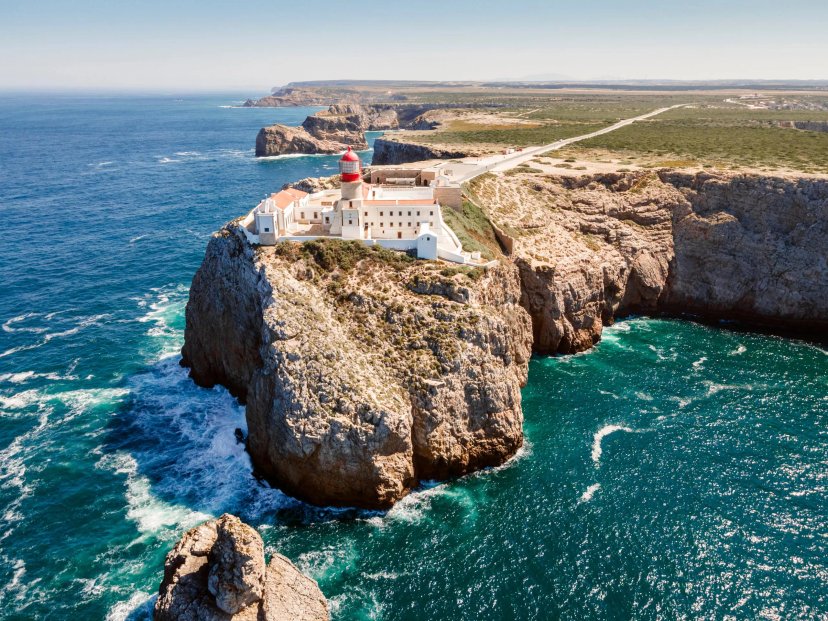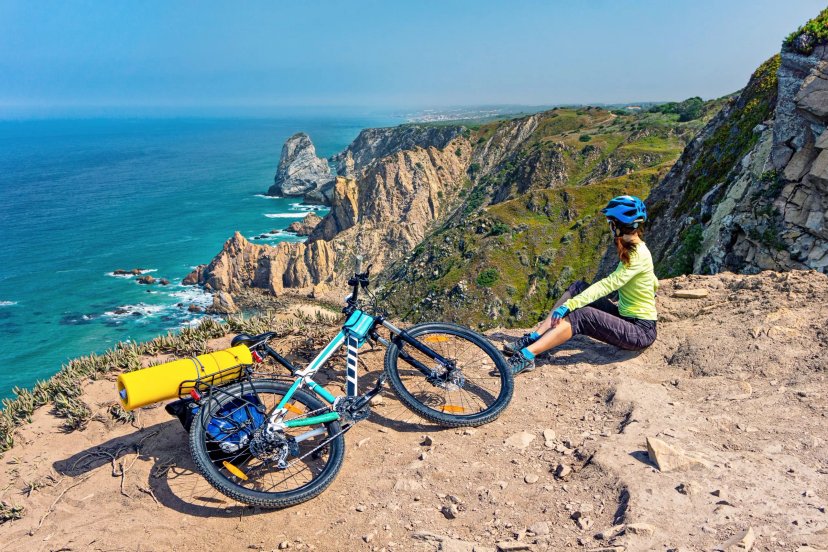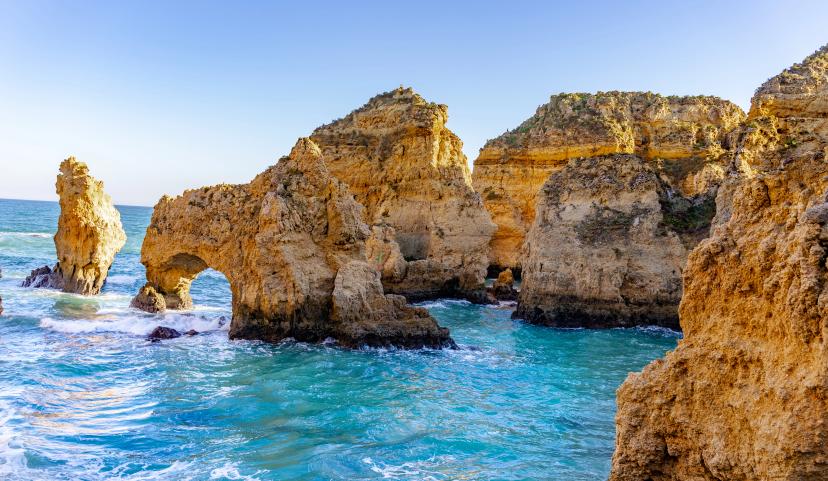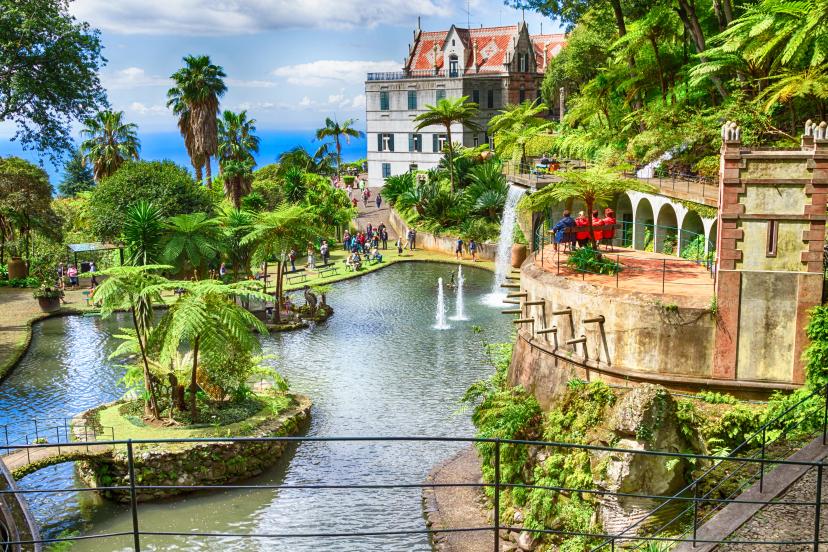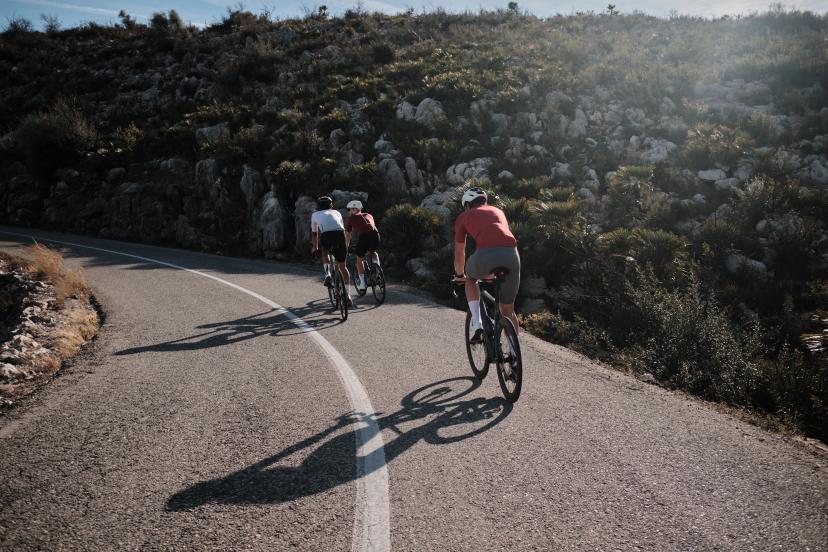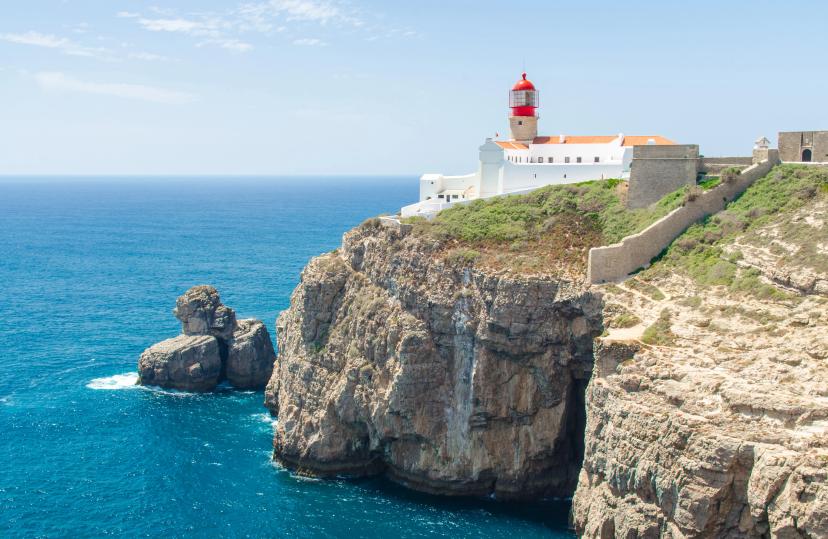The Ultimate Guide to Portugal Cycling Routes
Your go-to guide for everything you need to know before a cycling holiday in Portugal – from routes and regions to culture, weather, gear, and travel tips.
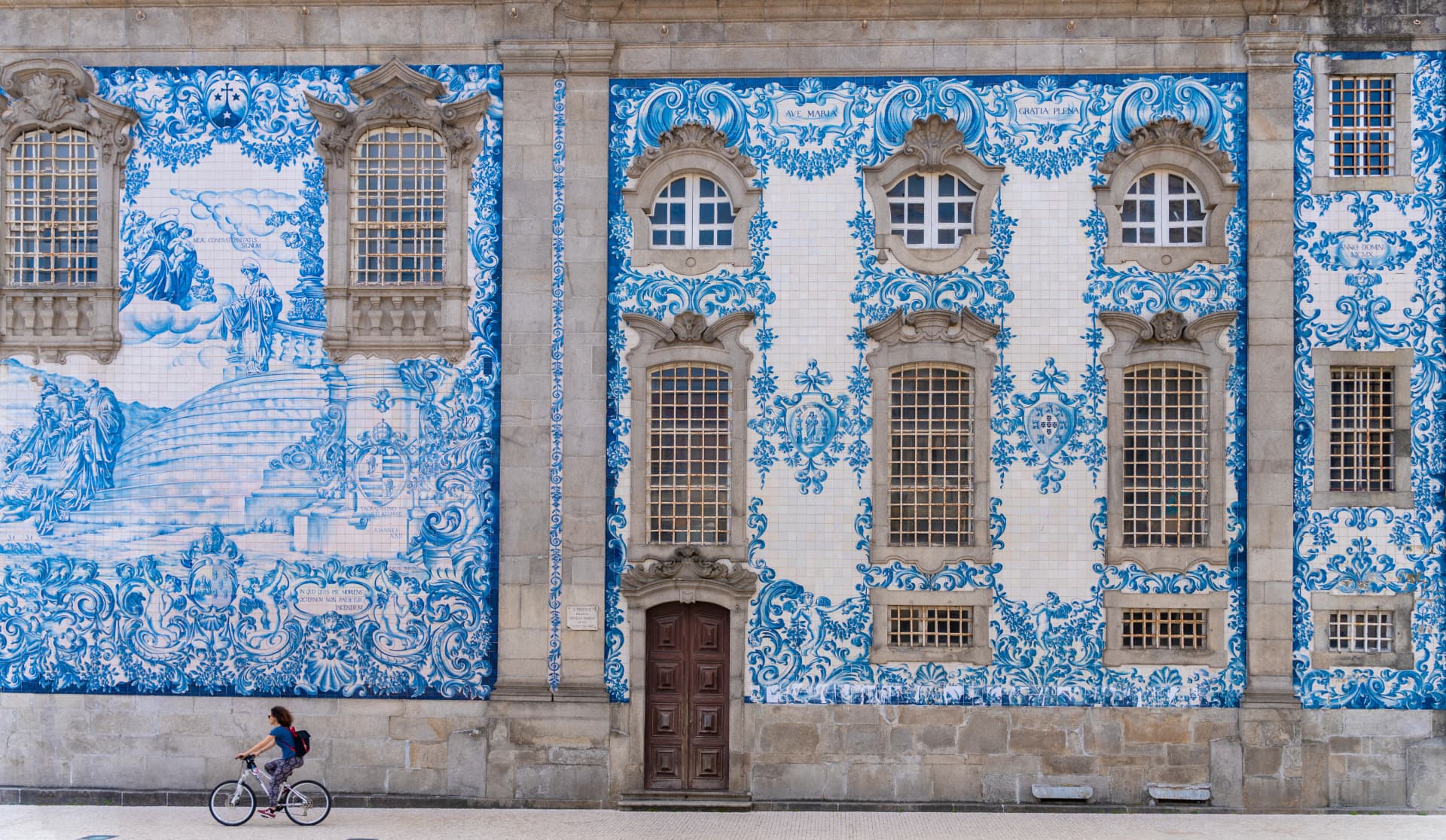
Quick links
Did you know Portugal has over 15,000 km of marked cycling trails, 300+ days of sunshine per year, UNESCO sights on every turn and some of the quietest roads in Western Europe?
It’s no wonder it's becoming one of the most popular cycling destinations in Europe!
This guide covers everything you need to know before your cycling holiday, including:
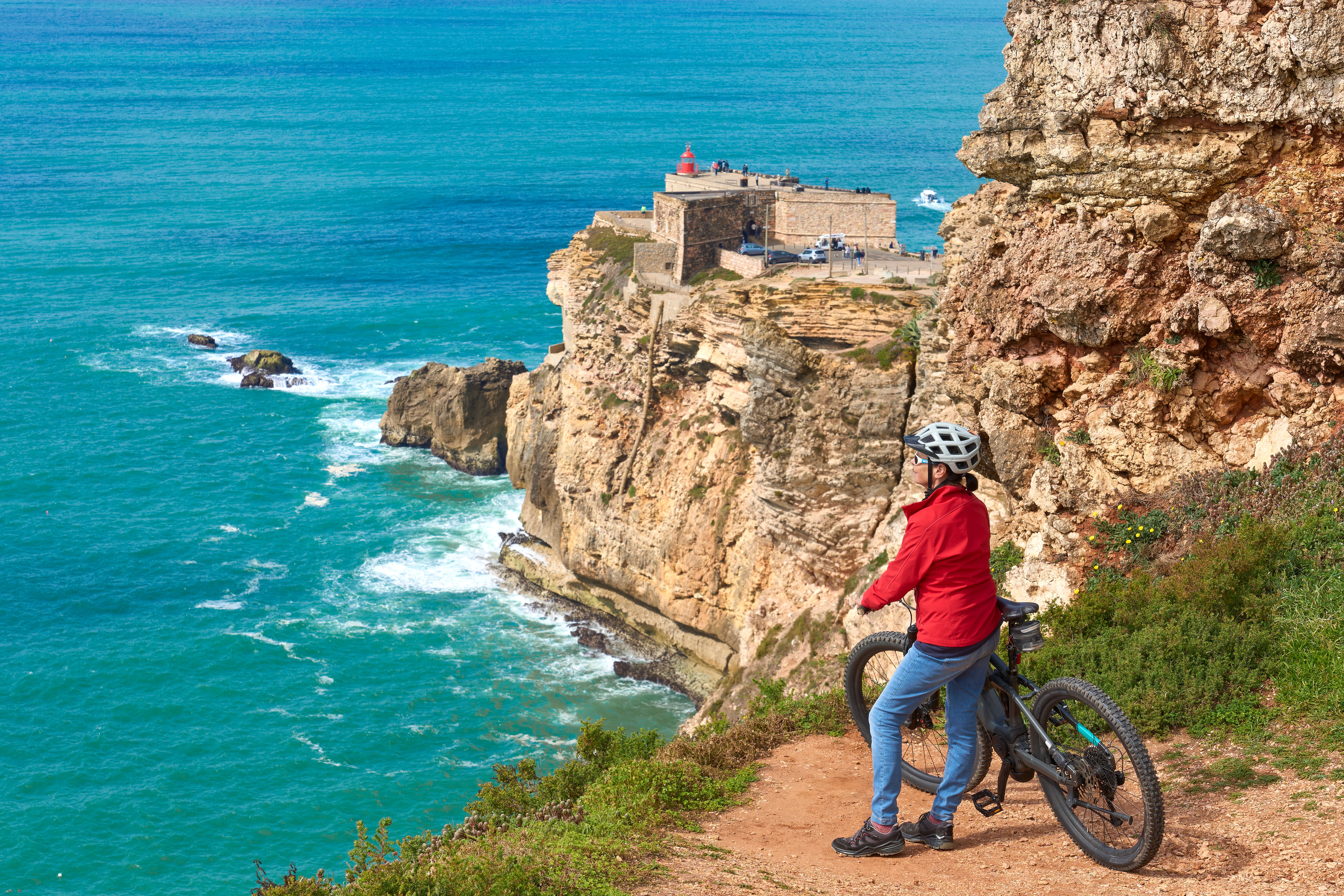
Why Cycle Portugal?
You may ask yourself, "why choose cycling Portugal over other destinations?" To keep it short, Portugal is quickly climbing the ranks as one of Europe’s best destinations for cyclists—and for good reason.
From cycling Portugal coast and vineyards to remote mountains and charming towns, the country offers an incredible variety of landscapes in a compact, bike-friendly package.
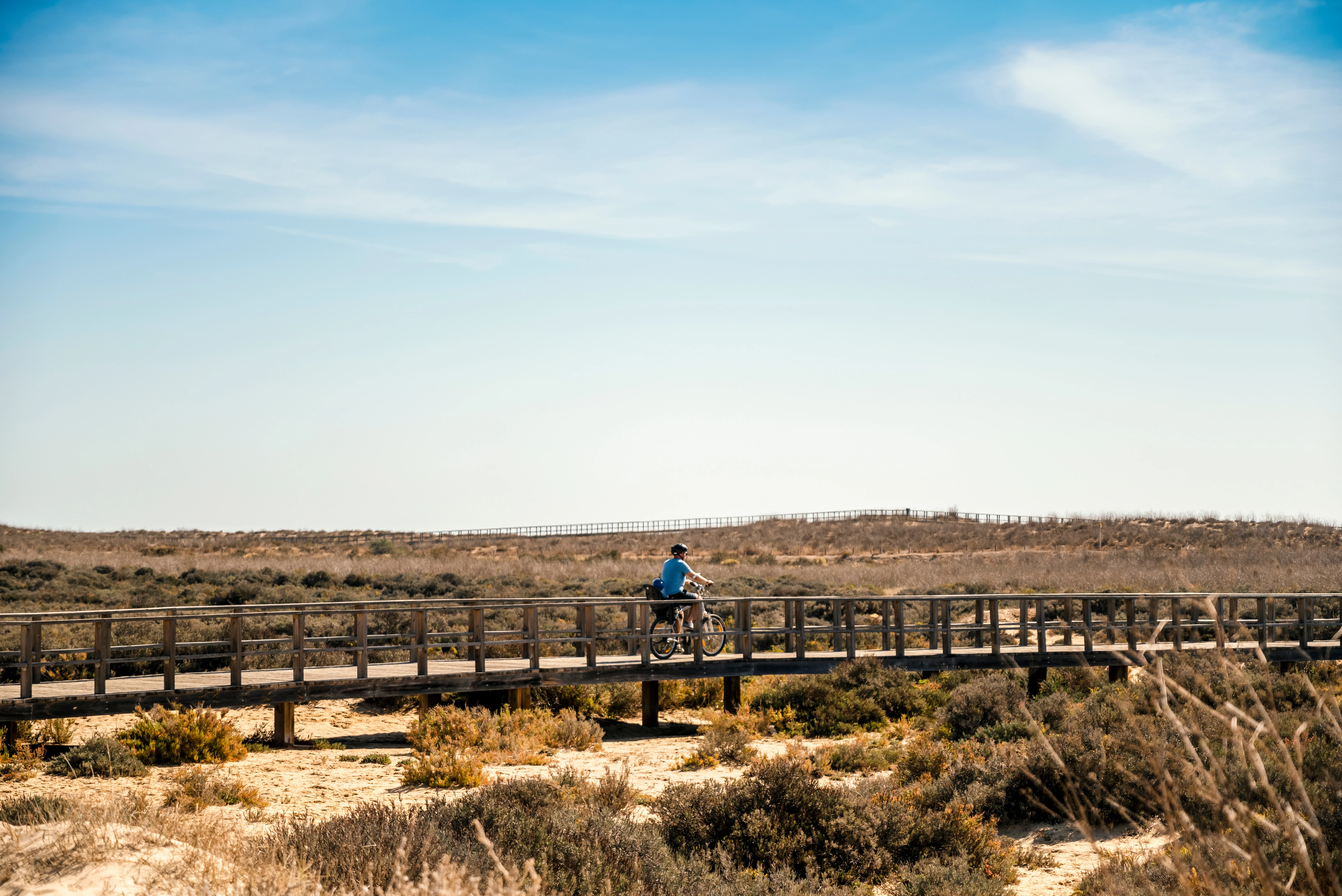
But what makes the country one of the top cycling destinations in Europe?
15,000+ km of designated cycling trails
Beautiful weather year-round
Diverse landscapes in a compacted area
A safe, peaceful environment (top 10 globally)
Growing bike infrastructure across cities and the countryside
Centuries of rich cultural heritage and UNESCO sites
A cuisine that rewards every ride and world-class local wine
And, above all, heartfelt hospitality that makes every encounter memorable
There's much more to add! Here, you can find a full breakdown of everything that makes Portugal so special.

When To Go?
Portugal is a year-round destination for cycling holidays, but knowing when to ride—and where—can make or break your trip.
Best time for cycling Portugal:
Spring and autumn: Sweet spots across much of the country, offering warm days, fewer crowds, and breezy afternoons that feel just right on two wheels.
Winter: While most of Europe is bundled up, the Algarve and Madeira are still serving up sunshine and warm days on the trails.
Summer: Great for the north, but a bit too hot inland unless you're an early riser or a heat lover.
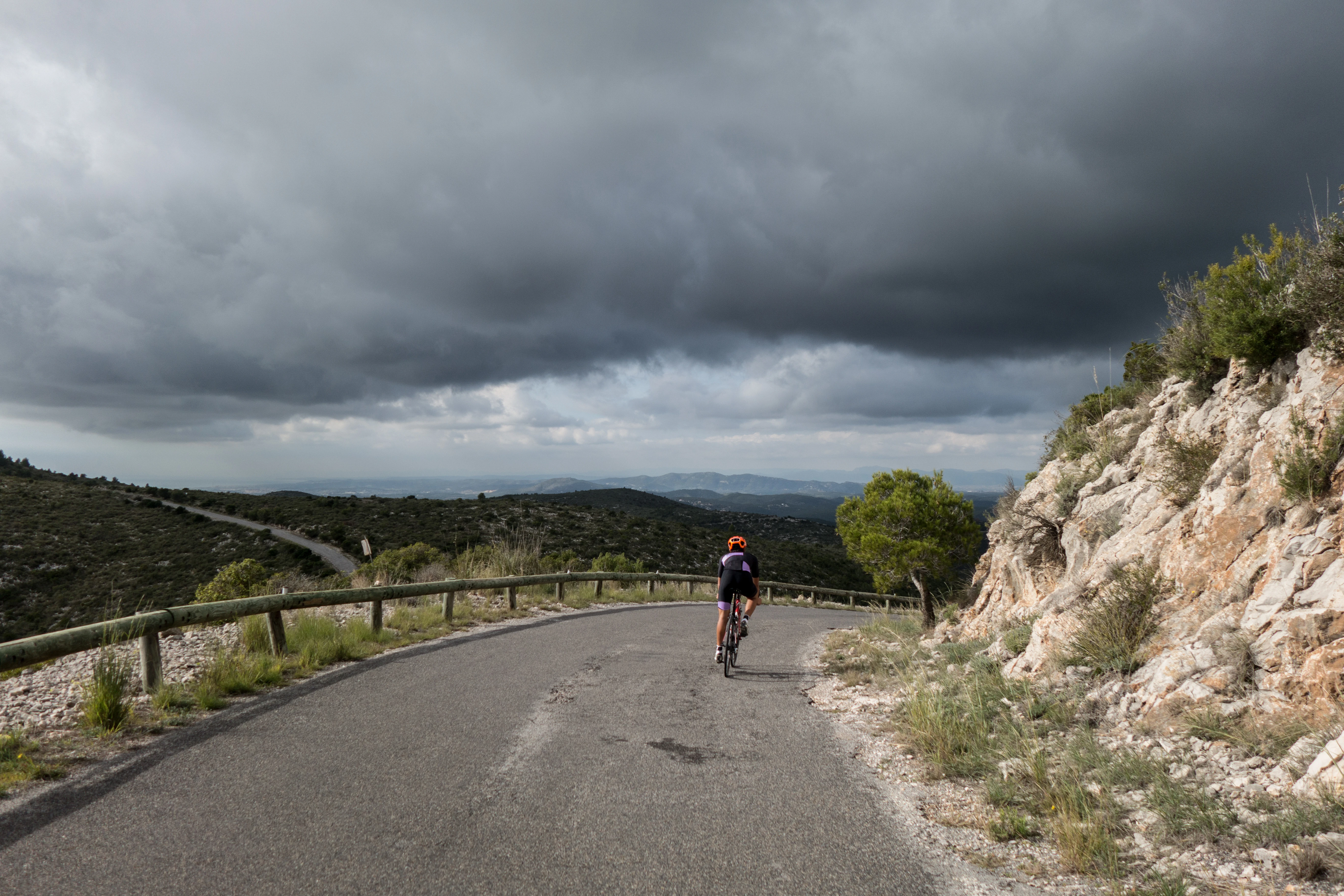
If you're not sure where to head yet, don’t worry—we’ve made it easy.
Our month-by-month weather guide breaks it all down. Inside, you’ll find everything from weather patterns and climate tips to which areas shine in which season, and know exactly where to go and when to roll.
Portugal’s Favorite Cycling Routes & Regions
What kind of rider are you? Coast-chaser, hill-climber, or someone who just wants a great view with their ride? In Portugal, you don’t have to choose, Portugal cycling routes give you all.
Every cycling holiday in Portugal packs in incredible diversity. In just one trip, you can go from exploring UNESCO-listed towns to riding along Europe’s wildest Atlantic cliffs.
Here are top 5 routes for cycling Portugal:
Vicentina Coast
Silver Coast
Algarve region
Douro Valley
Madeira
N2 Portugal
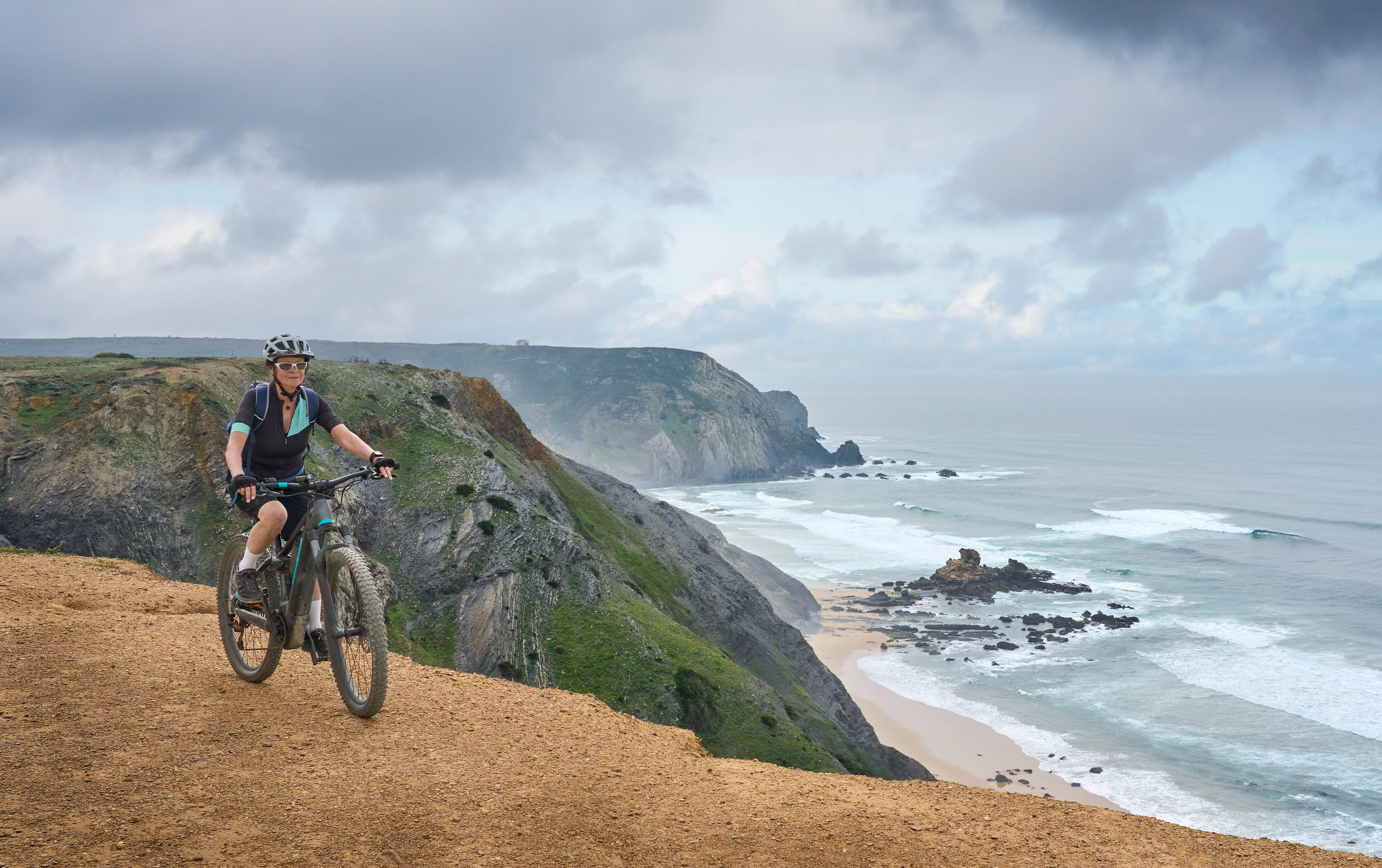
So, what makes these places must-ride destinations?
1. Vicentina Coast
This region is cycling Portugal coast at its wildest—Atlantic views, hidden coves, and traffic-light roads. Vicentina Coast is a bucket-list ride thanks to its “unforgettable way to explore” status—rolling over cliff trails, secluded beaches, and remote forests along southern Portugal’s unspoiled coastline.
Did you know, you can literally ride to the "end of the world"? The tour below will take you straight there:
2. Douro Valley
For scenic climbing and wine country ambience, biking Portugal doesn’t get more classic than the Douro. Here, cyclists pedal through the world’s oldest demarcated wine region, winding past UNESCO-protected vineyards and riding the famous N2 road, often hailed as one of the most scenic stretches in the world.
Experience the best of Douro valley:
3. The Algarve
With year-round sun, the Algarve is winter’s capital of cycling Portugal.
This southern region lures those chasing year-round sunshine and smooth roads—around 3,100 hours of sun annually make it one of Europe’s top winter riding destinations, with varied routes from coast to countryside.
Ride the best trails of the region during this tour:
4. Silver Coast
Gentle terrain and ocean breezes make the Silver Coast a family-friendly gateway to the cycling Portugal coast.
This cycling gem appeals with its gentle, flat terrain, tranquil seaside villages, and rideable lanes—it’s an ideal pick for e-bikers, families, and anyone who prefers leisure over climbs. Sounds like a winner?
Look no further - we have just the tour:
5. Madeira
For adventurous biking Portugal, Madeira delivers big elevation and bigger views.
Also known as the Island of Eternal Spring, Madeira offers something entirely different—dramatic elevation changes, volcanic landscapes, and lush microclimates make it an extreme yet rewarding playground for adventurous cyclists.
Ride the best of Madeira:
6. N2 Portugal – The Cross-Country Classic
Looking for a bucket-list traverse? N2 Portugal (Estrada Nacional 2) runs north–south from Chaves to Faro, crossing mountains, river valleys, cork forests, and the sun-drenched Alentejo before reaching the Algarve. It’s the ultimate point-to-point for riders planning N2 Portugal cycling with luggage transfers and GPX guidance.
Why ride it?
A single historic road that stitches together Portugal’s heartland.
Heritage towns, regional cuisine, and scenic viewpoints every day.
Flexible pacing—from fast challenges to leisurely touring—making cycling N2 Portugal accessible to many levels.
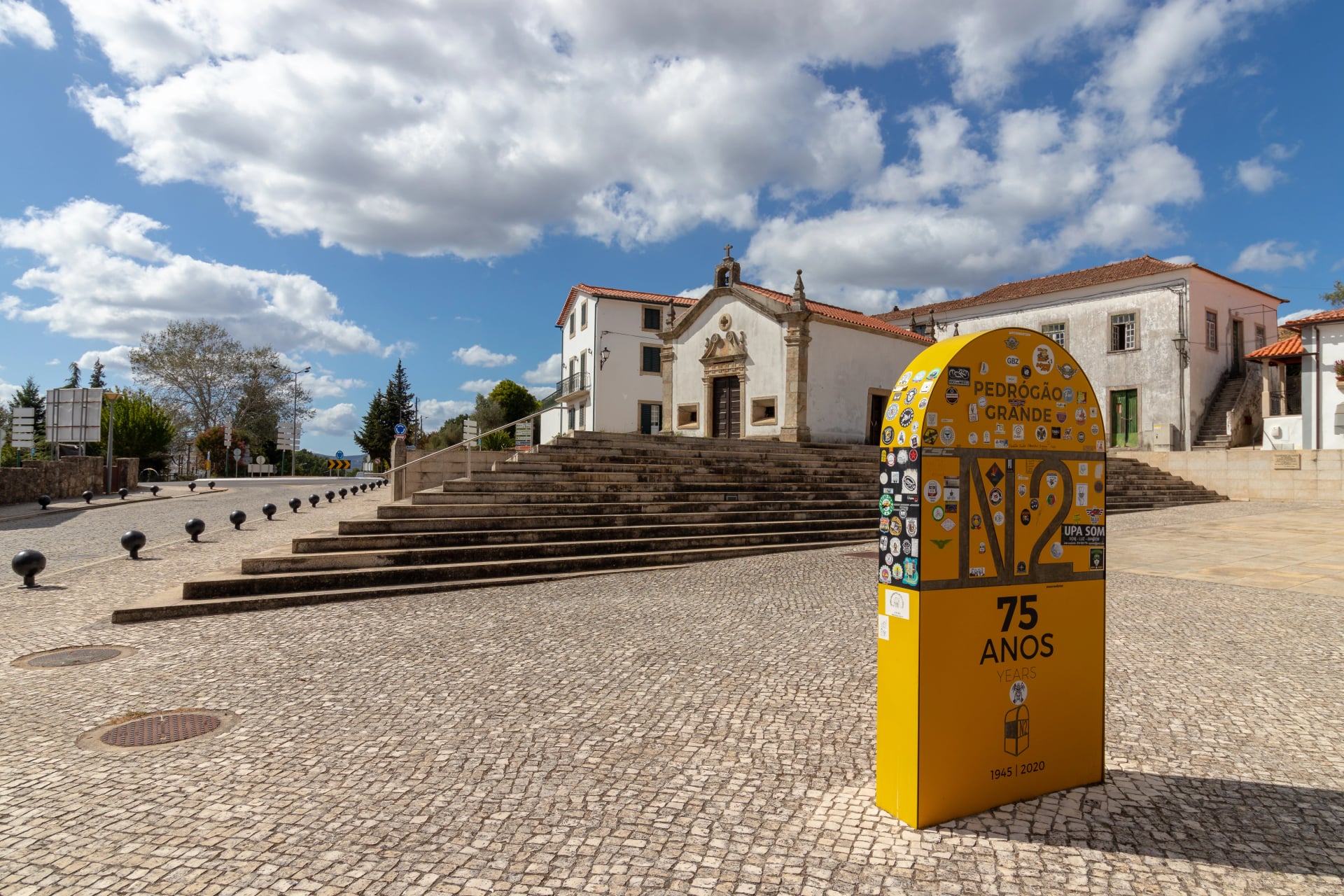
These regions aren’t just popular—they stand out because they deliver the cycling experience everyone dreams of.
If you're curious about the infrastructure, route types, regional highlights, or what kind of cyclist each area suits best, this page breaks it all down. Need help navigating? Reach out to us!
Best Places to See in Portugal
Portugal may be small in size, but it's packed with cultural and historical treasures—17 UNESCO World Heritage Sites, more than 850 km of Atlantic coastline, and towns where every cobblestone has a story to tell.
These highlights pair perfectly with cycling Portugal itineraries—most sit right on (or a short detour from) our routes.
Get inspired with more landmarks, UNESCO sites, and hidden gems featured along our routes. Here's the extended list of must-see places in Portugal, featured in our cycling tours.
How Many Days for a Cycling Trip?
Most of our itineraries for cycling Portugal work brilliantly in 7 to 8 days, striking a perfect balance between activity and leisure.
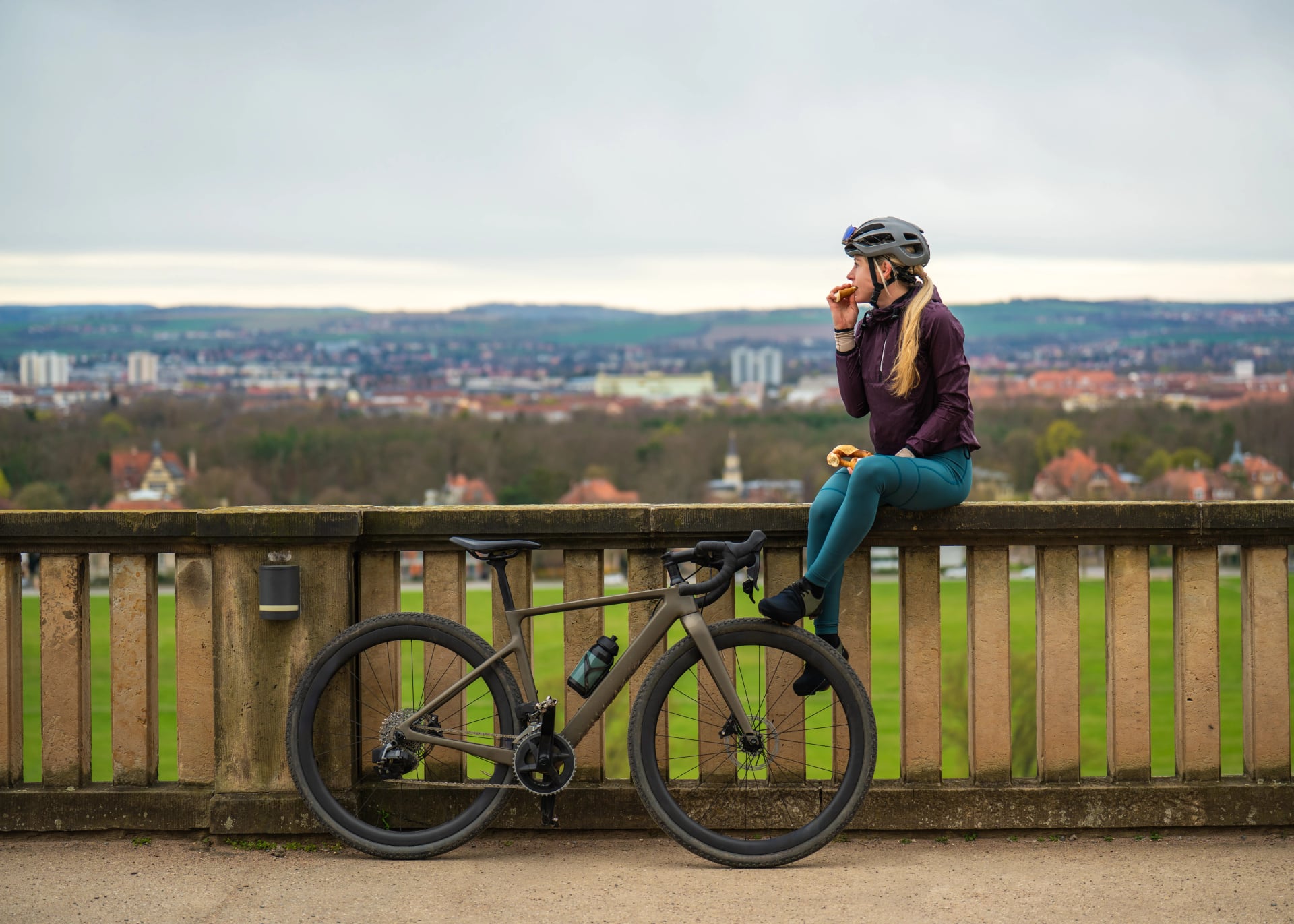
This time frame gives you enough days to cover iconic routes, immerse yourself in regional culture, and enjoy the landscapes without rushing.
But if your schedule allows, extending your stay before, after, or even during the tour is a fantastic way to deepen the experience.
Take our Vicentina Coast Bike Tour, for example. We often suggest that our cyclists spend a couple of days in Lisbon before the cycling holiday begins. The Portuguese capital is a vibrant mix of old-world charm and modern energy, and it's just a short trip to Sintra, known for its fairytale palaces and mystic forests.
It would be a shame to miss it, wouldn't it?
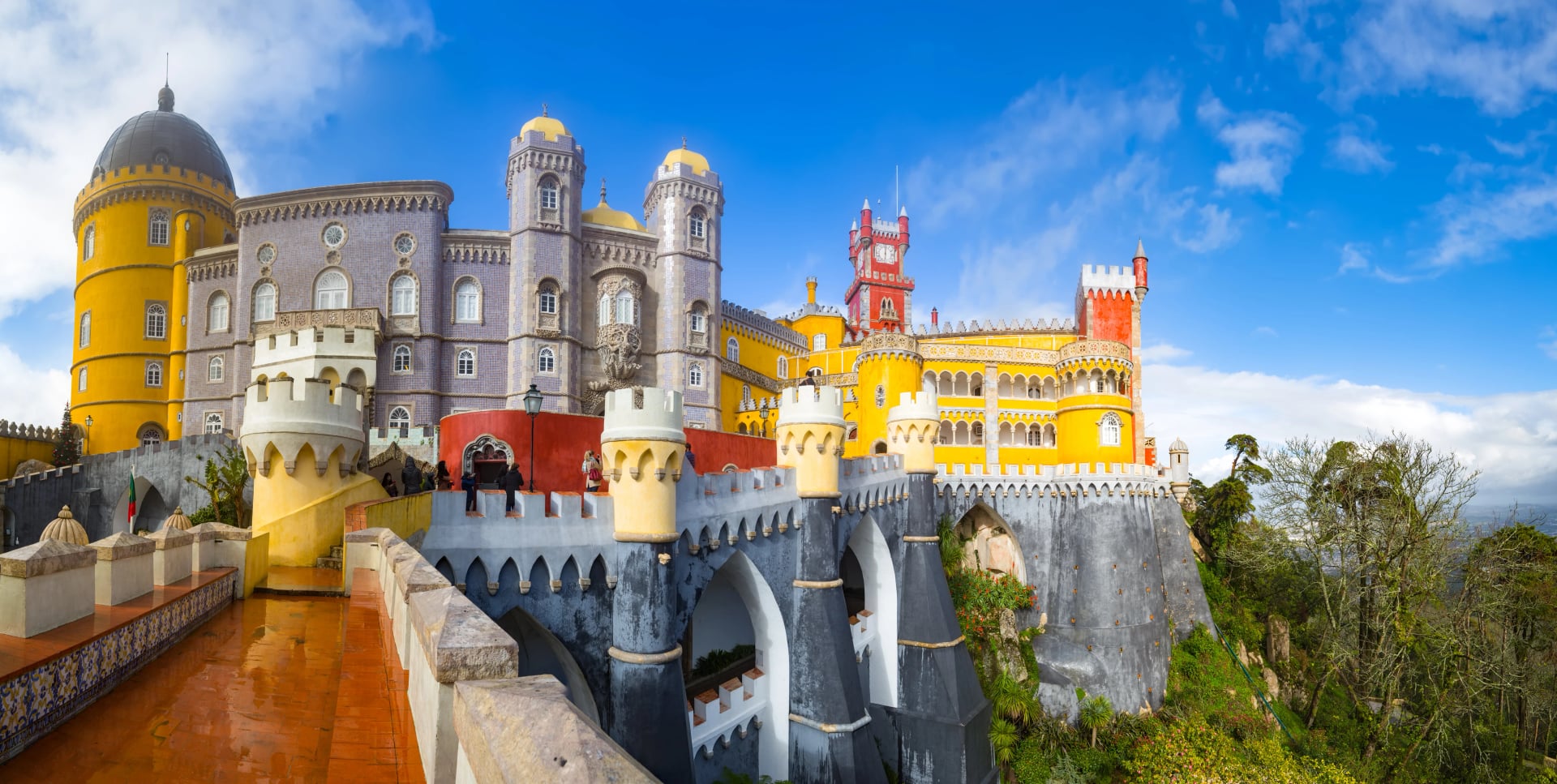
So if you’ve got the time, we encourage you to explore beyond your saddle. Our travel agents know Portugal like the back of their hand and are happy to help you:
Add pre-tour cultural stops
Plan post-tour rest days
Choose active add-ons like hiking, kayaking, or wine tasting
We're always here to chat about your interests and how much time you have and happy to craft the perfect extended experience.
What to Pack?
Packing for cycling Portugal doesn’t have to be overwhelming.
With our digital guidebook, you’ll receive a detailed, personalized checklist based on your tour, the season, and the region you’re visiting.
Here are the Essentials You Shouldn’t Forget
Passport (valid for at least 3 months beyond your return date)
Cycling clothes: jerseys, padded shorts, gloves, and a lightweight jacket
Casual off-bike outfit: for dinners or walks around town
Swimwear: for beaches, hotel pools, or spas
Walking shoes or sandals for off-the-bike time
Helmet – included in our bike rental (but bring your own if preferred)
Phone + charger + EU plug adapter (Type C or F)
Power bank to keep devices charged during rides
Sunglasses and sunscreen
Reusable water bottle
Credit/debit cards and some euros in cash
Local SIM card – easy to get upon arrival in Portugal
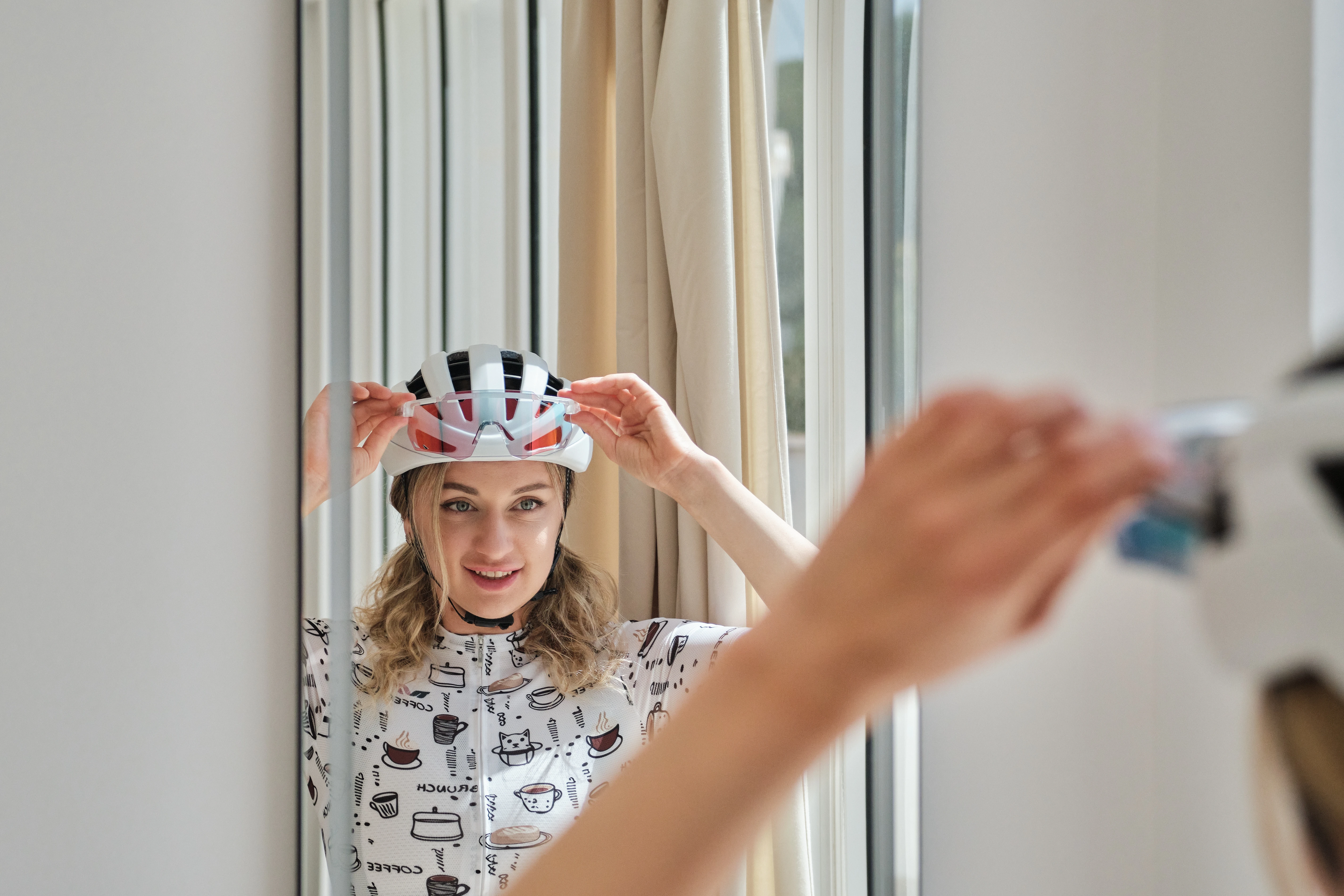
Cycling Rules & Road Etiquette in Portugal
Understanding the rules and etiquette of the road is essential for a safe and enjoyable cycling Portugal.
Here's what every rider on a Portugal bike tour or self-guided cycling in Portugal should know:
General cycling rules
You’re allowed to ride on public roads, bike paths , and shared lanes
Cycling on motorways (autoestradas) is illegal and prohibited
Bicycles are legally considered “vehicles,” so you must follow the same traffic laws as cars: obey signs and signals, ride on the right side, and yield at crosswalks

Riding Formation & Signals
Riding two abreast is allowed, provided you're not obstructing traffic
Always ride on the right-hand side and use clear hand signals when turning or changing lanes
Stop at red lights, stop signs, and yield to pedestrians at crossings
Sidewalk Cycling & Vulnerable Areas
Cycling on sidewalks is prohibited, except in the case of young children (under 10)
Be extra cautious in “coexistence zones”, shared pedestrian–vehicle spaces—pedestrians always have priority
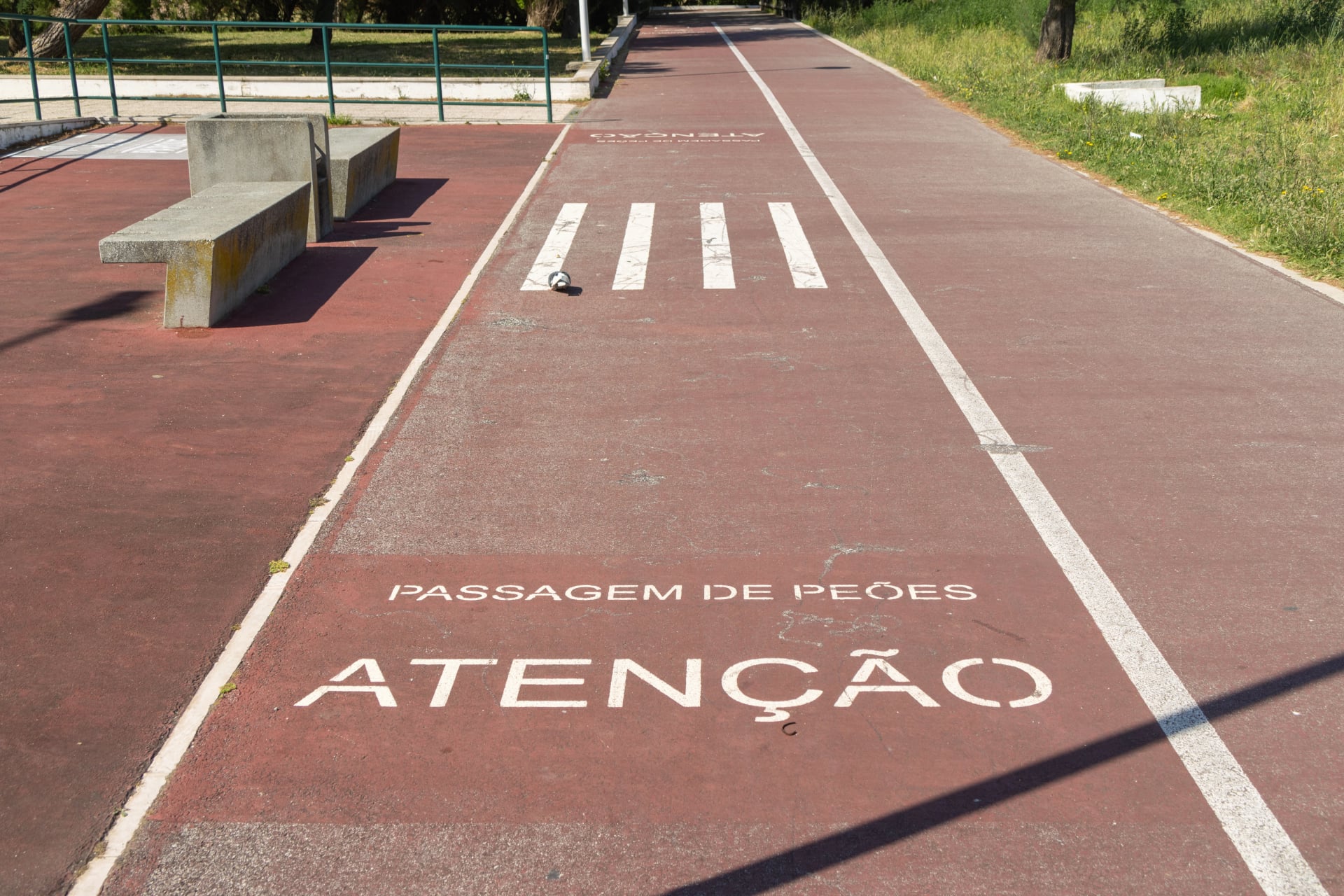
Helmet & Visibility Rules
Helmets are strongly recommended, especially on rural or mountainous routes, but not mandatory for adults
Children under 12 must wear helmets by law
When riding at night or in low light, you are required to use a white front light and a red rear light, and wear reflective clothing or accessories
Phone & Audio Use
Cycling while using a mobile phone (even hands-free) or wearing headphones/earbuds is forbidden
Alcohol & General Safety
The legal blood-alcohol limit applies to cyclists (0.5 g/L)
*be cautious when enjoying local wines during your Portugal cycling holidayPortuguese drivers are generally courteous, especially in quieter areas, but caution is needed on narrow rural roads or busier lanes
Courtesy & Etiquette
Gently wave or nod to drivers who give you space—it's appreciated
On narrow roads, ride single-file; on wider ones, two abreast is fine if it’s safe and non-obstructive
Be extra careful around cobbled town centers, often with narrow streets and pedestrian traffic

Navigating Portuguese Culture for Cyclists
Cycling Portugal is more than just pedaling through beautiful landscapes—it's also a chance to connect with the culture, people, and pace of everyday life.
Here are a few things to know about Portuguese customs, habits, and attitudes that will help you feel more at home during your cycling holiday in Portugal.

Embrace the Portuguese Pace - Timing Here is Flexible
Portugal operates on a slower, more relaxed rhythm. But don’t worry, that should not affect your cycling holiday too much.
Lunch is often served between 12:30 and 3:00 PM, while dinner rarely starts before 7:30 PM.
Many rural towns shut down midday (around 1–3 PM), especially in the heat.
Sundays are quiet—markets close, shops shut, and roads feel blissfully empty for cycling.
Be patient if service feels slower than you’re used to—it’s not rude; it’s just the Portuguese way.

Café Culture
Portugal’s café scene is not just about caffeine—it’s a social institution.
In nearly every village, you’ll find a pastelaria or café where locals gather for espresso (called bica in Lisbon or cimbalino in Porto), a sweet pastry, or a light lunch.
Don’t expect a “grande latte”—coffee comes small, strong, and quick.
It’s common to stand at the bar, especially for a quick espresso break during your ride.
Prices are modest, and tipping is not expected, but rounding up the bill is appreciated.
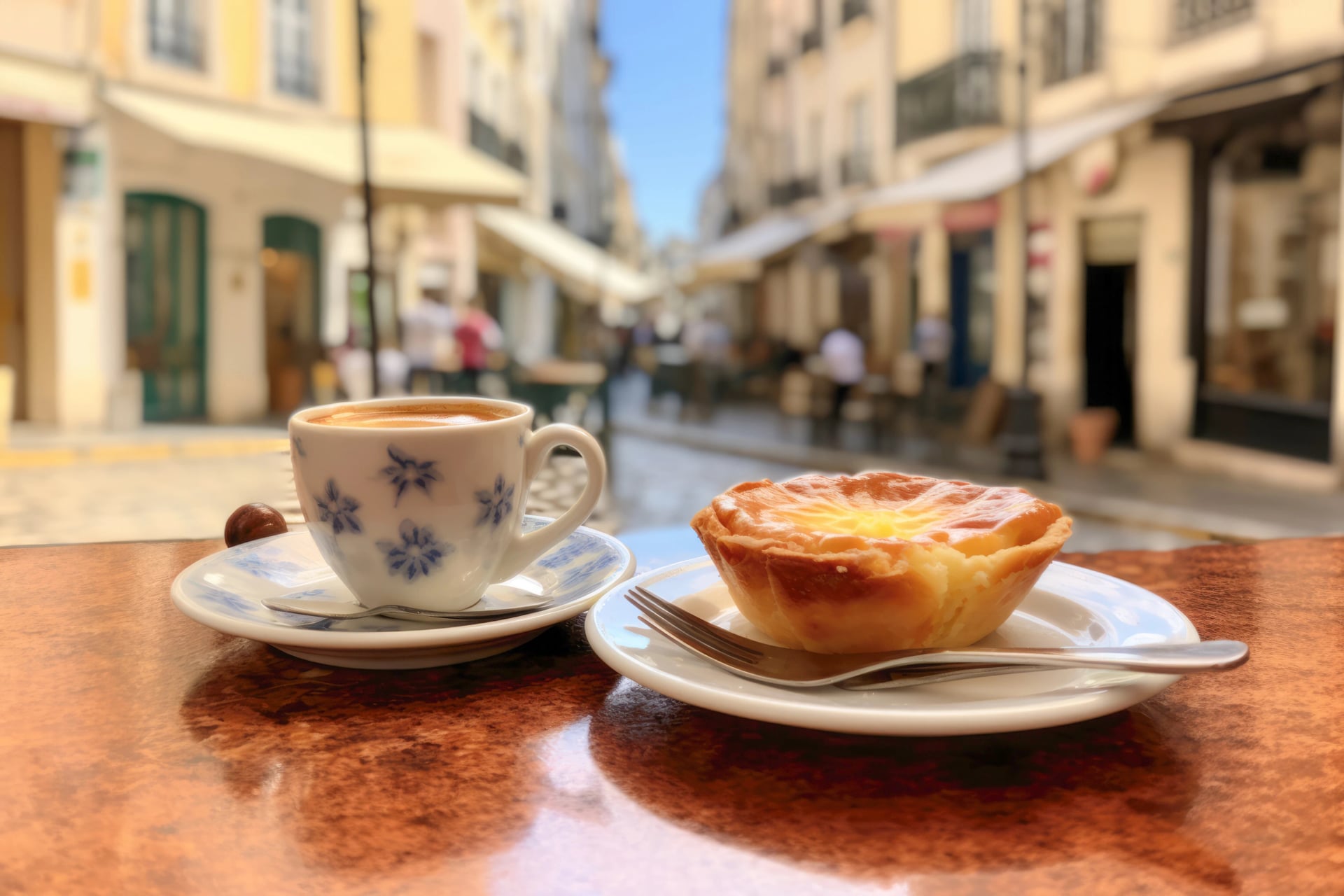
Cuisine Worth Riding For
A cycling holiday in Portugal isn’t just about the ride—it’s also about what’s on the table. From flaky pastéis de nata to hearty regional stews and freshly grilled seafood, every stop brings a new local flavor. Our self-guided bike tours in Portugal lead you through villages and vineyards where food is as memorable as the views.
See the selection of Portugal’s must-try dishes.
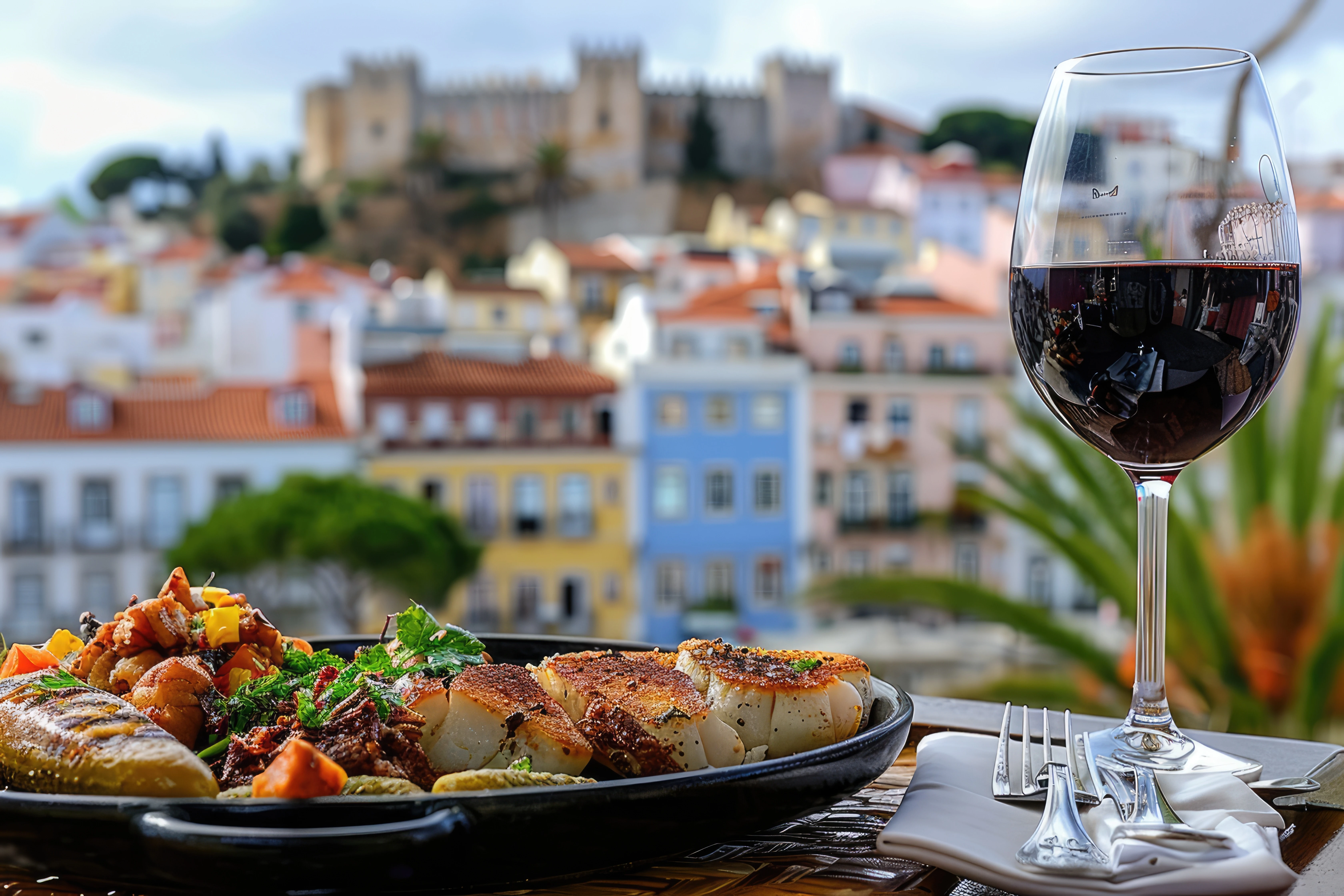
Culture on the Road: Expect the Unexpected
In Portugal, culture doesn’t just live in museums—it often spills right into the street. Don’t be surprised if your ride pauses for a local festival, a religious procession, or even a flock of sheep crossing a country lane.

And if you're on a cycling tour in Madeira? Watch out for the famous wicker toboggans zooming down the steep roads of Funchal! These traditional rides share the same narrow routes you might be pedaling—so keep an eye out, yield when needed, and enjoy the show.
It’s all part of the charm—these little interruptions are often the moments you’ll remember most.
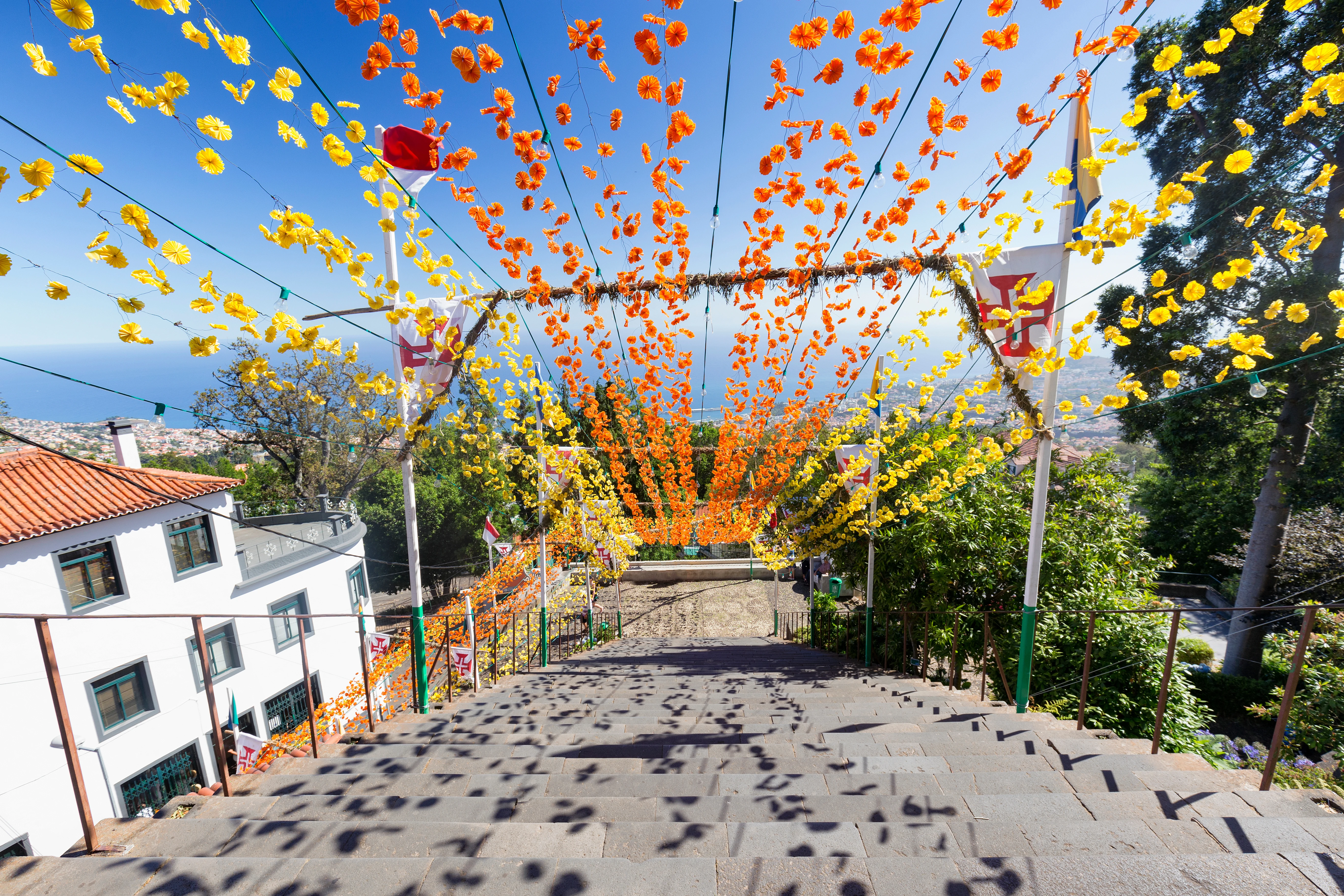
Language Tips: Portuguese Basics
While many people in cities and tourist-friendly areas speak English, especially in Lisbon, Porto, and along the Algarve, knowing a few local phrases makes your experience more rewarding.
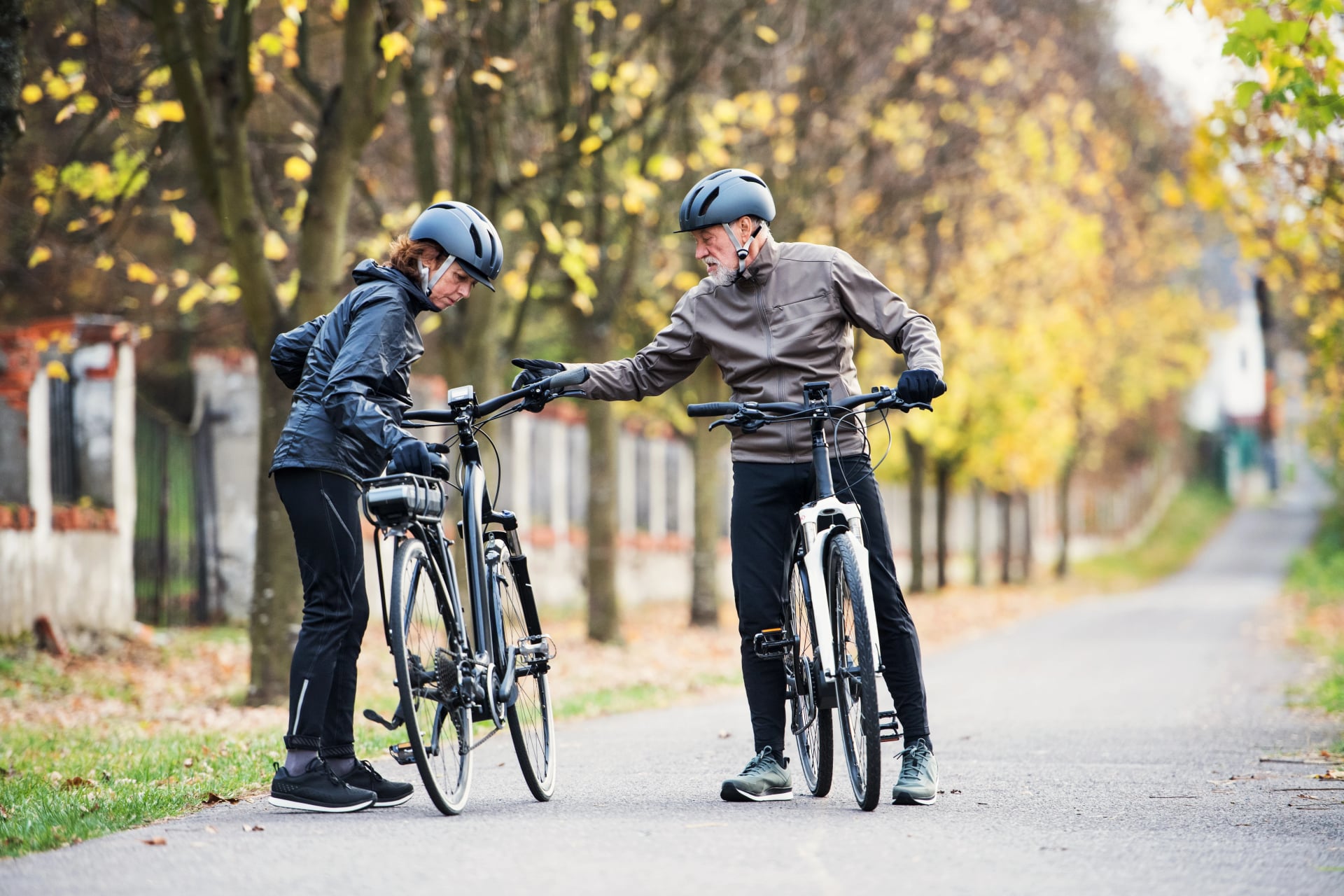
Did you know that Portugal is one of Europe’s oldest nations, with borders unchanged since 1249? Or that “obrigado” (thank you) literally means “obligated,” as in “I am obliged to you”?
Portuguese is full of these charming cultural quirks that deepen your connection to the people and the land.
Here are 20 useful Portuguese phrases that might come handy during your trip:
Olá (oh-LAH) – Hello
Bom dia (bohm DEE-ah) – Good morning
Boa tarde (BOH-ah TAR-d) – Good afternoon
Boa noite (BOH-ah NOY-t) – Good evening / Good night
Adeus (ah-DEH-oosh) – Goodbye
Por favor (poor fah-VOHR) – Please
Obrigado / Obrigada (oh-bree-GAH-doo / -dah) – Thank you (male/female speakers)
Desculpe (dehsh-KOOL-peh) – Excuse me / Sorry
Fala inglês? (FAH-lah een-GLAYS?) – Do you speak English?
Não falo português (now FAH-loo por-too-GAYSH) – I don’t speak Portuguese
Pode ajudar-me? (POH-deh ah-zhoo-DAR-meh?) – Can you help me?
Onde fica…? (ON-deh FEE-kah) – Where is…?
Quanto custa? (KWAN-too KOOS-tah) – How much does it cost?
Casa de banho (KAH-zah deh BAH-nyoo) – Bathroom / Toilet
Água (AH-gwah) – Water
Estou perdido/a (ehs-TOH per-DEE-doo/-dah) – I’m lost
Tenho um furo no pneu (TEHN-yoo oong FOO-roo noo pneh-OO) – I have a flat tire
Pode ajudar-me com a bicicleta? (POH-deh ah-zhoo-DAR-meh kohm ah bee-see-KLEH-tah?) – Can you help me with the bicycle?
Onde fica a loja de bicicletas? (ON-deh FEE-kah ah LOH-zhah deh bee-see-KLEH-tahs?) – Where is the bike shop?
Estou com fome / sede (ehs-TOH kohm FOH-meh / SEH-deh) – I’m hungry / thirsty
Foi um prazer (foy oong prah-ZEHR) – It was a pleasure
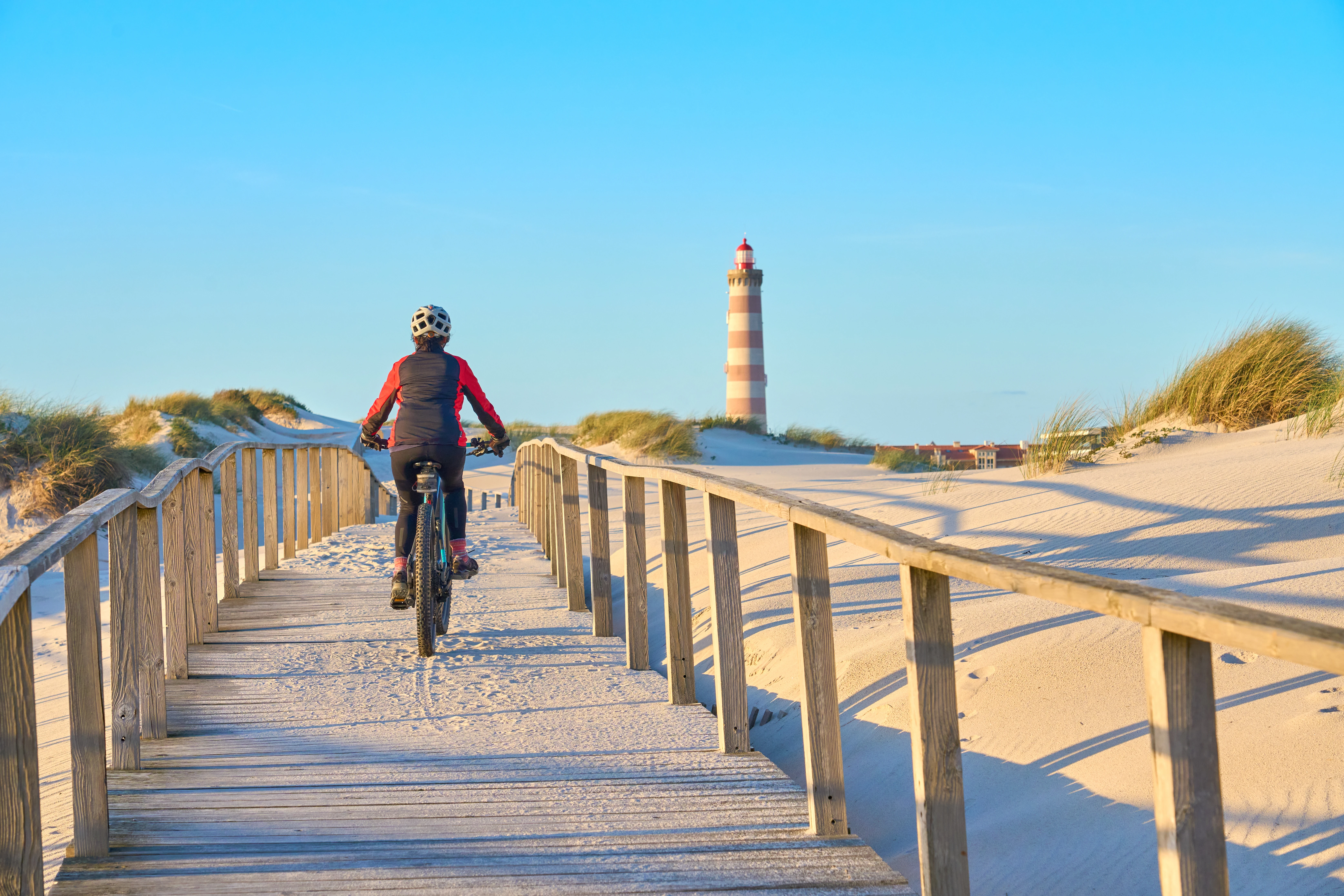
Travel Documents and Logistics
Visa and Entry Requirements
Most travelers visiting Portugal for tourism purposes can enter the country without a visa for up to 90 days. This includes citizens of the United States, Canada, the United Kingdom, Australia, Japan, and most countries in Europe and Latin America.
Portugal is part of the Schengen Area, so the 90-day limit applies to all Schengen countries combined, not just Portugal.
Make sure your passport is valid for at least three months beyond your planned departure date.
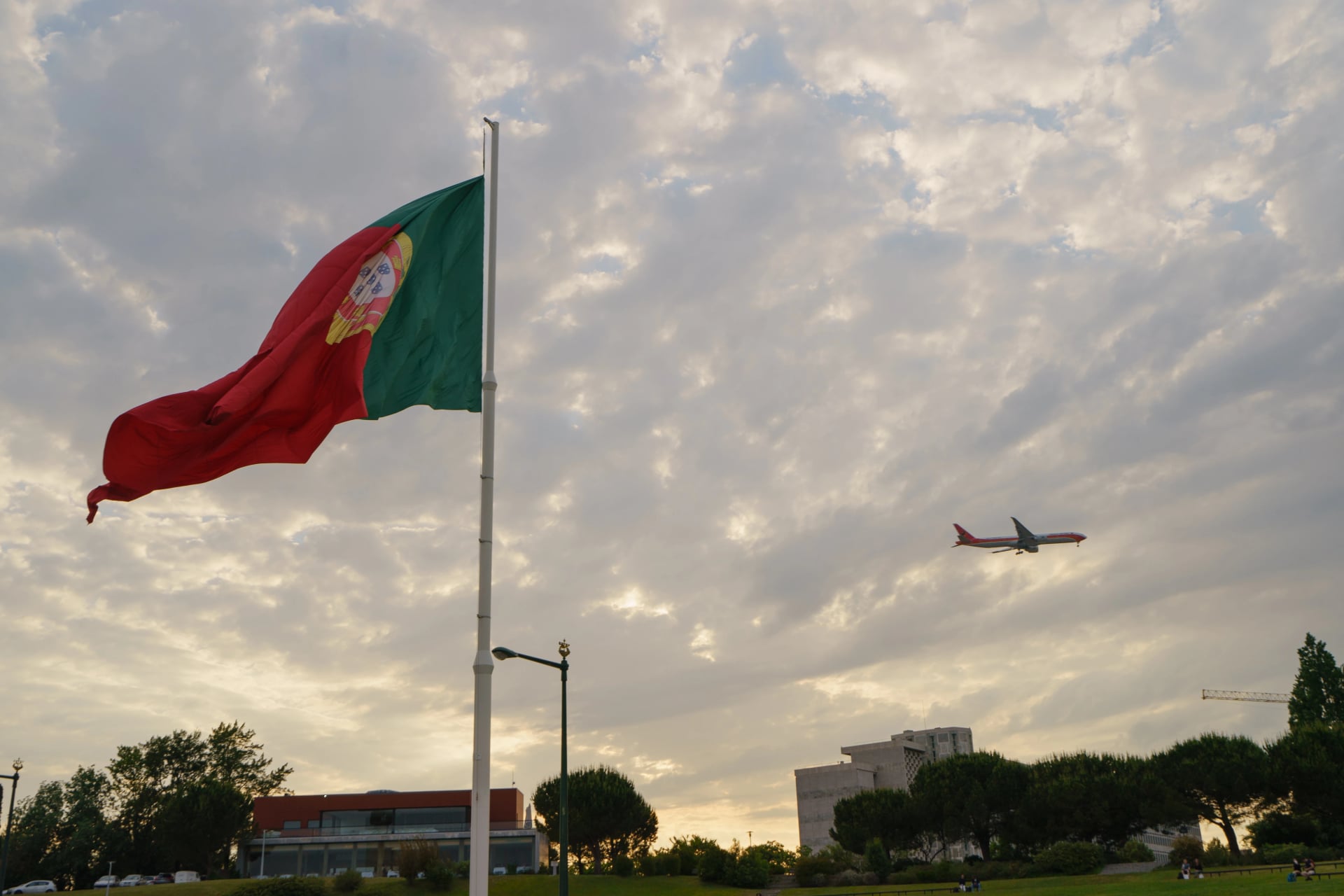
Major International Airports
Portugal has several international airports that provide convenient access to various regions of the country.
Lisbon Humberto Delgado Airport (LIS) – The largest and busiest airport in Portugal, located in the capital. Ideal for starting Vicentina bike tour.
Porto Francisco Sá Carneiro Airport (OPO) – Located in the north near Porto, this airport is great for cycling the Douro Valley or the Silver Coast cycling holidays.
Faro Airport (FAO) – Found in the southern region, Faro is the go-to airport for your cycling holidays in Algarve.
Ponta Delgada Airport (PDL) – Also known as João Paulo II Airport, this is the main hub in the Azores, on São Miguel Island. It’s best suited for travelers exploring the volcanic islands of the Azores by bike. Flights connect through Lisbon, Porto, and occasionally from North America or other EU cities.
Funchal Cristiano Ronaldo Airport (FNC) – Located on Madeira Island, this airport connects to the mainland and several European destinations. It’s the ideal arrival point for those who plan to explore Madeira by bike.
Travelling Via Public Transportation
Portugal has a reliable and affordable public transport system, making it relatively easy to get around even if you’re not renting a car.
Trains are run by Comboios de Portugal (CP) and include regional, inter-regional, and high-speed services. The Alfa Pendular trains connect major cities like Lisbon, Porto, and Faro and are a great option for covering long distances quickly.
Buses are also common, with Rede Expressos and FlixBus operating extensive national networks.
In Lisbon and Porto, you’ll find metro systems, trams, and urban buses that make local transport seamless. Lisbon even has historic yellow trams and ferries crossing the Tagus River.
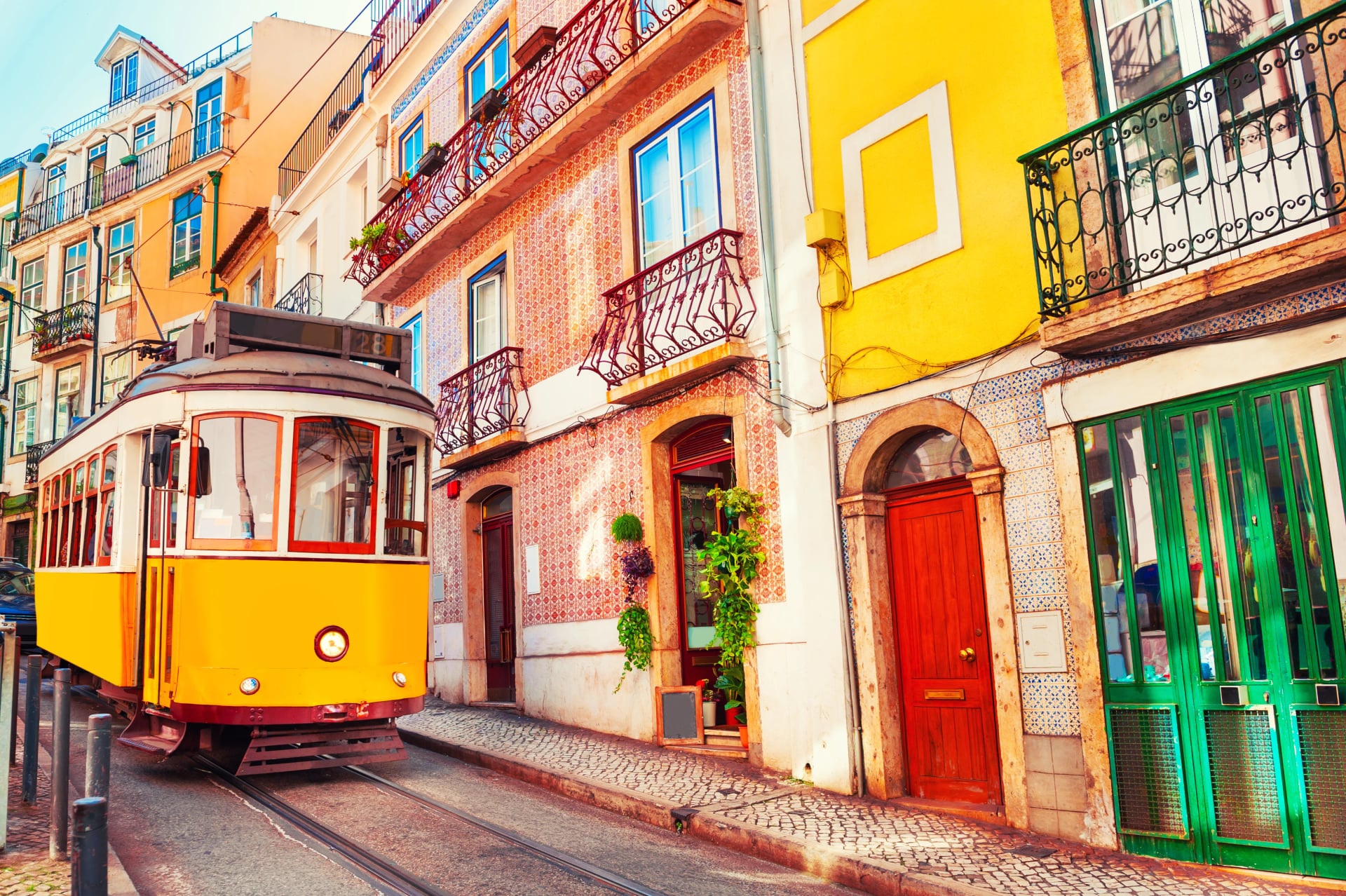
For schedules and planning, official websites like www.cp.pt (for trains) and www.rede-expressos.pt (for buses) are very helpful.
*If you’re travelling with us, rest assured. Our digital guidebooks come with detailed instructions and timetables for your specific travel route.
Currency and Payments
Portugal uses the Euro (€) as its official currency.
ATMs are widely available across cities, towns, and even smaller villages, and most businesses accept credit and debit cards. Still, it’s a good idea to carry some cash, especially when cycling through more rural or remote areas where card machines may not always be available.
Tipping is customary but not obligatory—rounding up or adding 5–10% for excellent service is appreciated.

Emergency Numbers and Safety
Portugal is considered one of the safest countries in Europe, but it’s always good to be prepared.
The general emergency number is 112, which can connect you to police, ambulance, and fire services.
Here’s what to say if you need to call:
State the emergency (e.g. accident, injury, fire)
Give your location (road name, town, GPS if possible)
Describe what happened briefly
Say how many people are involved
Mention any dangers (traffic, fire, etc.)
Give your phone number and stay on the line
You can call 112 from any phone, even without a local SIM.

Mobile Reception & Connectivity in Portugal
Portugal generally has excellent mobile coverage across the country, making it easy to stay connected during your cycling holiday. Urban areas, coastal towns, and most national and regional roads enjoy strong 4G reception, and even 5G is becoming increasingly available in larger cities.

If you're cycling in remote or mountainous areas—such as deep valleys, sections of the interior, or parts of the Azores and Madeira—be prepared for occasional weak signals or complete dead zones. In such cases, it’s highly recommended to download offline maps.
Main providers: The top mobile networks are Vodafone, MEO, and NOS. All offer good 4G coverage, with Vodafone often rated as the most reliable for rural travel.
Prepaid SIM cards: Widely available at airports, kiosks, post offices, and mobile shops. A €10–€20 SIM card typically includes several GB of data and EU roaming. No ID is required for purchase in most cases.
eSIM availability: Portugal supports eSIMs for compatible phones. Services like Airalo and Holafly offer digital SIMs you can install before arriving—handy if you prefer to stay connected right away.
Free Wi-Fi access: Many cafés, restaurants, accommodations, and even some public squares offer free Wi-Fi, especially in tourist-friendly towns.
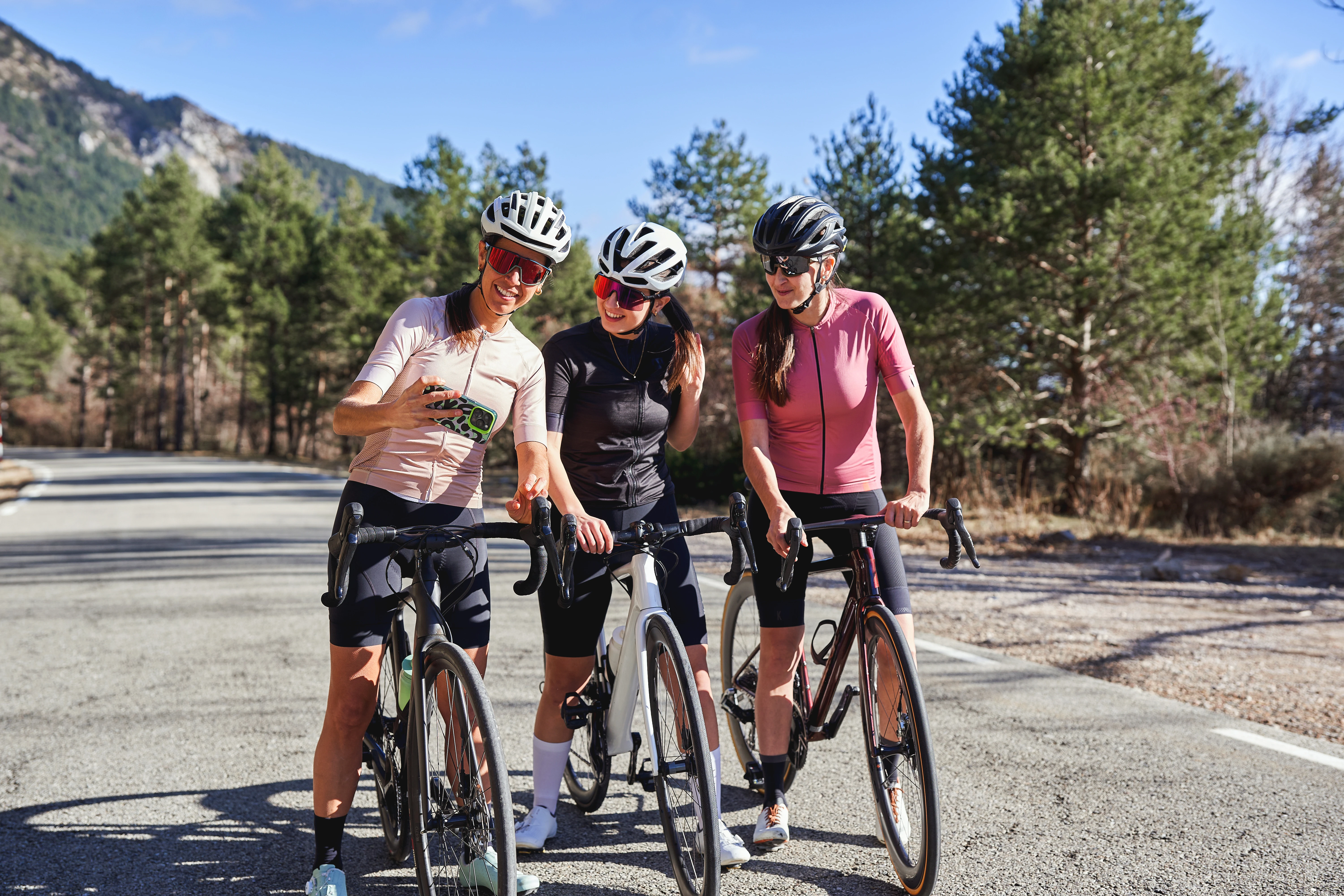
What to Expect on a Self-Guided Cycling Holiday
Morning: Get Set for the Ride
On the first cycling day, your bike will be delivered directly to your hotel, fully set up and ready to go. We include everything you need:
✔️ Bike (hybrid, road, gravel or e-bike depending on your booking)
✔️ Helmet
Each morning of the tour, breakfast is included at your hotel and is typically served between 7:00–10:00 AM.
We recommend an earlier start, especially in the warmer months, so you can ride in cooler temperatures and take your time enjoying the sights.
Once you're packed and ready, you’ll hit the trail for the day’s ride—with your GPX maps and digital guidebook leading the way.
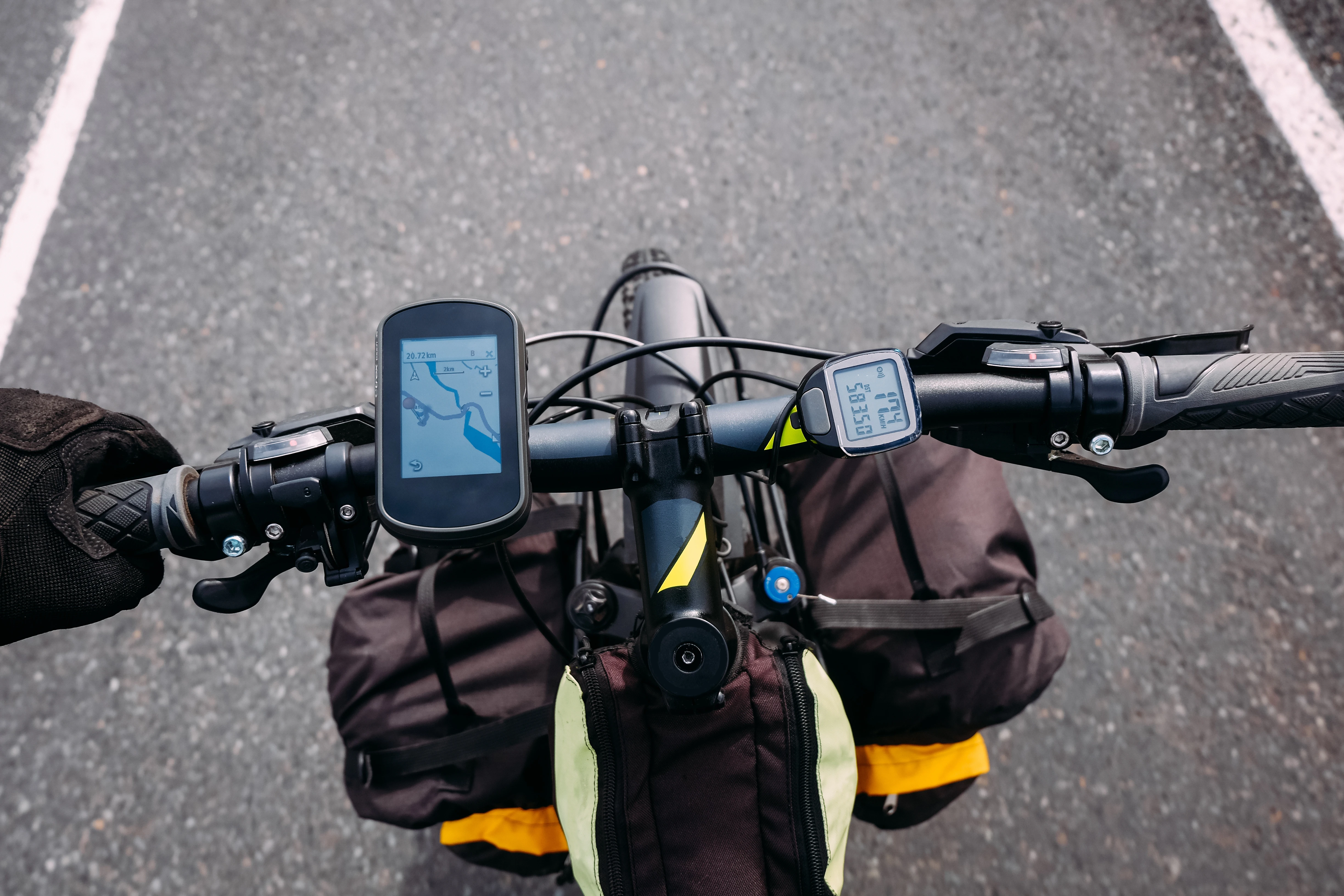
Midday: Explore at Your Own Pace
One of the best parts of a Portugal bike tour is the flexibility. Unlike group tours, you decide when to pause, take photos, or explore.
You don’t need to fuss about where all that will be - our digital guidebook and GPX tracks highlight:
Scenic viewpoints and natural landmarks
Cultural stops: castles, chapels, ancient bridges, vineyards
Recommended cafés and restaurants for a delicious local lunch
Take your time! If a quiet beach or a hidden courtyard calls you to linger, do it. That’s the freedom of self-guided cycling in Portugal.

Late Afternoon: Arrive & Relax
Most guests arrive at the next accommodation by late afternoon, giving you plenty of time to check in, shower, and enjoy a glass of wine or explore the local town. Accommodations are always pre-arranged, and your luggage will already be waiting for you.
To get an in-depth insight, read the blog about Brigitte’s cycling holiday in the Algarve.
Cycle through Portugal with Confidence
If you’ve booked a cycling holiday in Portugal with us, you’ll receive a detailed digital handbook with everything you need to enjoy your trip with confidence.
Included in every tour:
Digital guidebook with your itinerary and local tips
GPS navigation through an easy-to-use app
Tour planning and organization
Luggage transfers
On-tour support when you need it
Still deciding where to go? Send us an inquiry—we’ll help you choose the best self-guided tour based on your preferences, fitness level, and travel style.

Hassle-Free
We take care of route planning, accommodations, luggage transfers, and all logistics, so you can focus purely on enjoying your ride.

Tried & Tested Adventures
Our cycling routes are hand-picked & tested, to ensure breathtaking landscapes, smooth roads, and maximum safety - giving you the perfect ride every day.

Unbeatable Support
Our 24/7 customer support is where we show our passion, ensuring your cycling holiday runs smoothly and your well-being is always our top priority.

Book with Confidence
We are a financially protected company, fully bonded and insured, keeping your money safe and allowing you to travel with confidence.
.jpg&w=1920&q=75)

